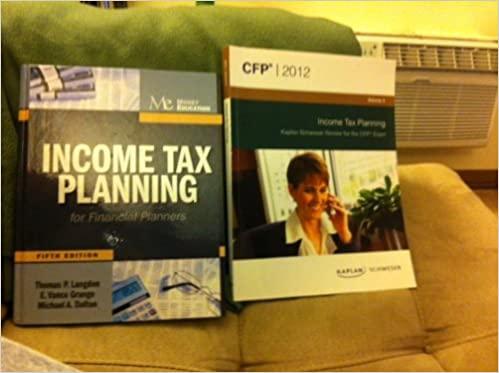Question
HOPEFUL, INC. Hopeful, Inc., a privately held company, has been struggling for several years to bring a new product to fruition. They have spent a
HOPEFUL, INC.
Hopeful, Inc., a privately held company, has been struggling for several years to bring a new product to fruition. They have spent a great deal of money on product development and on market research. The original stockholders' equity is gone and their resources for borrowed funds are exhausted as well. Management is confident that with another year's work their product will be ready to go, but they need operating funds for that one more year. To find those funds, management has desperately been exploring all options. The banks have all said that the company is too highly leveraged now and they have refused to extend additional credit. The market for common stock of development companies is very depressed. And, the present stockholders will not agree to the sale of additional common stock because of the dilution that would entail. The company's investment banker, however, has suggested a new scheme--that the company sells an issue of preferred stock in a private offering. With the additional equity provided, the company ought to be able to increase its bank borrowings. He has put together a preferred stock package which he thinks he can sell and which has been tailored to the company's expected cash flows. He proposes to sell a thousand shares of preferred stock at $50, with a $5 cumulative dividend, payable if earned. To be marketable, the stock must be redeemable in five years at the option of the holder at $65 a share. Clearly, the company does not intend to pay any dividends in the immediate future. However, if the product development goes as they expect, they should be able to pay the accumulated dividends within three or four years and to pay dividends from that point on. If things do not turn out well, the holders of the preferred stock will have a call on assets of the company equal to their original investment plus a reasonable return. The preferred stockholders would be junior to the outstanding bank debt, but senior to the common stockholders. The treasurer likes the plan, but noting the difficulty to account for the dividends and increased redemption value. He suggests that you and he discuss those questions later on, after the offering has been sold. He asks you to study the proposed preferred stock program and tell him if there are any other questions that need to be resolved now. After some hesitation, you ask him whether the preferred stock is really equity. You ask whether the $50,000 should be classified as additional debt, rather than as additional equity. The treasurer's smile fades. He asks, "Why would you call preferred stock debt? I can get you all kinds of legal opinions saying that preferred stock is legal equity. I'll admit it has some strange terms, but debt is debt and equity is equity. What basis could you have to override the legal definition?"
HOW SHOULD HOPEFUL, INC., ACCOUNT FOR THE PREFERRED STOCK ISSUE?
Step by Step Solution
There are 3 Steps involved in it
Step: 1

Get Instant Access to Expert-Tailored Solutions
See step-by-step solutions with expert insights and AI powered tools for academic success
Step: 2

Step: 3

Ace Your Homework with AI
Get the answers you need in no time with our AI-driven, step-by-step assistance
Get Started


